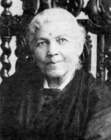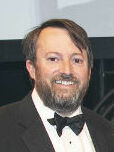Religious Hypocrisy Quotes
Quotes tagged as "religious-hypocrisy"
Showing 1-21 of 21

“People's behaviors are messages, not a diagnosis because I can no longer discern the world's version of insanity.”
―
―

“I no longer follow the voices of the sane. I follow the ill because they see farther, feel much more and change what the sane will not. This is the paradox of philosophers---trying to understand mass delusion among great people that have faith and knowledge, yet they can’t graduate from their institutions of religious theology to apply the knowledge they have gained for the shifting of Zion---- from words to action; from comfort to uncomfortable; from self serving to self giving; from competition to supporting; to tradition to unity; from bias to acceptance; from me to us.”
―
―

“Look at the tyranny of party-- at what is called party allegiance, party loyalty-- a snare invented by designing men for selfish purposes-- and which turns voters into chattels, slaves, rabbits; and all the while, their masters, and they themselves are shouting rubbish about liberty, independence, freedom of opinion, freedom of speech, honestly unconscious of the fantastic contradiction; and forgetting or ignoring that their fathers and the churches shouted the same blasphemies a generation earlier when they were closing thier doors against the hunted slave, beating his handful of humane defenders with Bible-texts and billies, and pocketing the insults nad licking the shoes of his Southern master.”
― Autobiography of Mark Twain, Volume 1: The Complete and Authoritative Edition
― Autobiography of Mark Twain, Volume 1: The Complete and Authoritative Edition

“Are doctors of divinity blind or are they hypocrites?”
― Incidents in the Life of a Slave Girl
― Incidents in the Life of a Slave Girl
“All religions, in their pure form, will tell you God is Love. And power, fear, division, judgment, oppression, hatred and self-righteousness are the opposite of Love. So going to war, for example, in the name of religion, is a complete contradiction. No pure religious leader would ever support this.”
―
―

“And do you think that unto such as you,
A maggot-minded, starved, fanatic crew,
God gave the Secret, and denied it me?--
Well, well, what matters it! believe that too.
Old Khayyám, say you, is a debauchee;
If only you were half so good as he!
He sins no sins but gentle drunkenness,
Great-hearted mirth and kind adultery.
But yours the cold heart, and the murderous tongue,
The wintry soul that hates to hear a song,
The close-shut fist, the mean and measuring eye,
And all the little poisoned ways of wrong.”
― Rubaiyat of Omar Khayyam
A maggot-minded, starved, fanatic crew,
God gave the Secret, and denied it me?--
Well, well, what matters it! believe that too.
Old Khayyám, say you, is a debauchee;
If only you were half so good as he!
He sins no sins but gentle drunkenness,
Great-hearted mirth and kind adultery.
But yours the cold heart, and the murderous tongue,
The wintry soul that hates to hear a song,
The close-shut fist, the mean and measuring eye,
And all the little poisoned ways of wrong.”
― Rubaiyat of Omar Khayyam

“He's in love with the notion of shame and he traffics the shit like a schoolground pusher, spreading it around but never personally using.”
― A Complicated Kindness
― A Complicated Kindness

“He seemed evidently more fond of controversy than of truth, and the whole turn of his conversation indicated that he derived his religious security rather from the adoption of a party, than from the implantation of a new principle.”
― Coelebs in Search of a Wife
― Coelebs in Search of a Wife

“Bah! Do you think the poor people of the barrio pay for the upkeep of the Church? No! Wealth flows from wealth! And sources of wealth need stability to exist! And the Church provides stability! We teach the poor how to bear their burden; they are promised the kingdom of heaven, which is far more important than the little gains your strike would make …”
― Heart of Aztlan
― Heart of Aztlan

“The difference between an atheist and a person of faith? One additional religion in the crazy column. You believe that all religions except yours are crazy. I believe that all religions including yours are crazy.”
― Horse Latitudes
― Horse Latitudes

“Steffy risked a glance at her fellow neighbors and townspeople. She often looked for kindred spirits in the crowd. None were ever found. Just once, she wished to see someone trying to hide a smile, a snicker, or plain sighing at the absurdity. The rowdy outcasts among the community were not welcome in the church. They knew better than to show their faces.”
―
―

“No one has ever challenged the PC regime like Trump. He is the athlete in the Apple commercial throwing a sledgehammer through Big Brother's telescreen. He doesn't observe political correctness about anything. He's not PC on the things that upset millennial social justice warriors, and he's not PC on the cornball religious stuff--upsetting show-off Christians like George W. Bush's religion adviser, Michael Gerson, who considers himself the last word in piety. (Apparently, destroying the only Christian country on earth by dissolving our borders is ultra pious.)”
― In Trump We Trust: E Pluribus Awesome!
― In Trump We Trust: E Pluribus Awesome!

“That was his father's way---beloved, tough old Preacher Jackson: hellfire and fear. That had always been his way, and Llewellyn had no use for it. He had no use for his father or the kind of people who listened to him, holding fast to his every damning word; finding assurance in being better.
I'm better than...At least I'm not...I'm better than...
Llewellyn had no use for it.”
― Children of Promise
I'm better than...At least I'm not...I'm better than...
Llewellyn had no use for it.”
― Children of Promise

“[T]he debate between Orson Pratt and Brigham Young continued long after the legislative session ended. The two men gave life to the two competing explanations for the racial priesthood restrictions in the Church... Both explanations were grounded in an underlying assumption that Black people were inferior to white people and that white skin was normal and black skin was somehow cursed---a deterioration away from whiteness. Rather than trusting Jesus Christ when He told Joseph Smith, 'All flesh is mine, and I am no respecter of persons,' these various explanations favored white flesh over other shades of flesh and implied that Jesus Christ was in fact a respecter of persons.”
― Let’s Talk About Race and Priesthood
― Let’s Talk About Race and Priesthood

“[Orson Pratt] argued that only God could administer curses and that they were specific to a given time and place. In his estimation, enslavers who suggested that biblical curses were still in force had taken it upon themselves 'to execute the curse of Almighty upon that race without being commanded to do it and they will have to be punished for rising up and inflicting this curse upon [the] descendants of Adam.' Even if God did curse Ham or Canaan or Cain in the Bible, Pratt did not believe that such curses passed down to anyone else. He rejected the notion that nineteenth-century enslavers, including Latter-Day Saints, had any authority from God to enslave Black people. 'Shall we assume the right without the voice of [the] Lord speaking to us and commanding us to [introduce] slavery into our territory?' Pratt queried. He was dismayed by such a prospect... People of African descent were not guilty of some premortal sin for which slavery was the penalty, Pratt said. 'Shall we take then the innocent African that has committed no sin and damn him to slavery and bondage without receiving any authority from heaven to do [so]? That they and their children shall be servants to us and our children? The idea is preposterous in my mind,' he demanded. 'For us to bind the African because he is different from us in color [is] enough to cause the angels in heaven to blush![']... 'We have no proof that the Africans are the descendants of old Cain who was cursed, and even if we had that evidence we have not been ordered to inflict that [curse] upon that race.”
― Let’s Talk About Race and Priesthood
― Let’s Talk About Race and Priesthood

“In 1907... Joseph Fielding Smith, then serving as assistant Church historian, argued that the teaching... [of neutrality, inadequate valiance, or evil in the premortal realm] was 'not the official position of the Church, merely the opinion of men.”
― Let’s Talk About Race and Priesthood
― Let’s Talk About Race and Priesthood

“In John Taylor's assessment, Joseph Smith had erred in allowing Able [a member of African descent] the priesthood, and Brigham Young had revealed God's will when he declared Black people to be cursed descendants of Cain. With each new decision, the racial restrictions hardened in place, especially as each succeeding generation became reluctant to violate the precedent established under Brigham Young, even though Brigham Young's precedent violated the open priesthood and temple policies put in place under Joseph Smith.”
― Let’s Talk About Race and Priesthood
― Let’s Talk About Race and Priesthood

“As President J. Reuben Clark explained, Jesus taught Peter through example about the gospel's universal message, but it still took 'a thrice-repeated vision to convince him that God is no respecter of persons.' As President Clark noted, the Savior's 'acceptance of the Samaritans, the race hated by Judah, left Peter untaught.' Instead of following the Savior's example, he 'kicked against the pricks,' especially 'against the principle of the universal salvation of men---men of all creeds, races, and colors.' Peter still resisted even after the Lord commanded His disciples to 'go ye into the world.'... He thus offers a lesson in how hard it can be for good people, even prophets, to overcome their cultural assumptions and biases, even when the Lord gives them very direct instructions.”
― Let’s Talk About Race and Priesthood
― Let’s Talk About Race and Priesthood

“They set about reversing all the changes that had been made since the break with Rome . . . The only thing that wasn't put back was the monasteries - this was deemed unworkable as the aristocracy, catholic and Protestant alike, had bought those lands from the crown, were really enjoying them and, if it came down to it, gave much more of a shit about their vast new properties than they did about the difference between the mass and holy communion.
Weird, isn't it? People were willing to die for these religious differences, but they wouldn't sacrifice real estate.”
― Unruly: The Ridiculous History of England's Kings and Queens
Weird, isn't it? People were willing to die for these religious differences, but they wouldn't sacrifice real estate.”
― Unruly: The Ridiculous History of England's Kings and Queens

“One of the things that I picked up... was the sense that religion often gets in the way of God. For me, at least, it got in the way. Seeing what religious people [do] in the name of God...”
―
―
All Quotes
|
My Quotes
|
Add A Quote
Browse By Tag
- Love Quotes 97.5k
- Life Quotes 76k
- Inspirational Quotes 72.5k
- Humor Quotes 43.5k
- Philosophy Quotes 29.5k
- Inspirational Quotes Quotes 27k
- God Quotes 26k
- Wisdom Quotes 23.5k
- Truth Quotes 23.5k
- Romance Quotes 23k
- Poetry Quotes 22k
- Death Quotes 20k
- Happiness Quotes 18.5k
- Life Lessons Quotes 18.5k
- Hope Quotes 18k
- Faith Quotes 18k
- Quotes Quotes 16.5k
- Inspiration Quotes 16.5k
- Spirituality Quotes 15k
- Religion Quotes 15k
- Motivational Quotes 15k
- Writing Quotes 14.5k
- Relationships Quotes 14.5k
- Life Quotes Quotes 14k
- Love Quotes Quotes 14k
- Success Quotes 13.5k
- Time Quotes 12.5k
- Motivation Quotes 12k
- Science Quotes 11.5k
- Knowledge Quotes 11k

